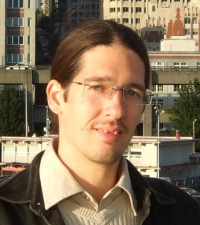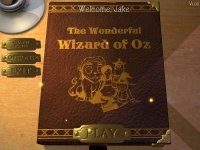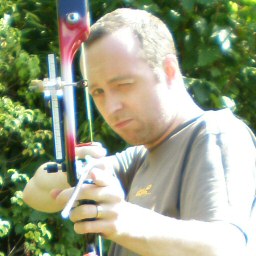Interview with Chanon Sajjamanochai, Executive Game Producer of Viqua Games
23 02 2009One of the greatest things about indie (and casual) games is that you don’t have to live in the USA, Canada or UK to make great games. You can leave in Poland, Croatia or… Thailand. Chanon Sajjamonachai, Executive Game Producer of Viqua Games is a great example of that. Shop-n-Spree, their latest release holds strong in Big Fish Games top 10 sales chart. If you want to know how Chanon makes those top selling games reading this interview will a be great start :)
How did you start your game development adventure? How big is your studio now?
I knew I wanted to make games since high school. Soon I began learning C++ on my own and made a minesweeper clone and a simple top-down shooter. It was extremely hard to find info on making games though here in Thailand. About the time when I got to college, the internet explosion was just beginning, so with my top-end (at the time) US Robotics 33.6K modem I tried to find and learn everything I could about making games.
Fast forward 5 years later, I got bored with my enterprise software development job after a year and decided to resign and start a software company, thus ViquaSoft was born. At that time J2ME games on cell phones was supposed to be the next big thing, so we did a few games for that, but then I discovered the Dexterity forums and decided that developing casual downloadable games on PC was more exciting and might be more lucrative. So we started developing Tommy and the Magical Words and have focused on downloadable casual games ever since.
Right now we have 8 full-time people at our office here in Bangkok. We started with 3 in the beginning about 4 years ago and have been expanding continuously. Right now we’re expanding again and are looking for some more good programmers.
I am impressed by execution of themes in your game. You surely get maximum fun out of it. Who designs your games?
Thanks :)
The answer to that question is all of us. All 8 of us are the designers of our games.
The process goes like this:
First when we need to come up with a new game idea, we have everyone go back and try to come up with some and we meet and have everyone pitch their concepts. Then we kind of vote to choose the best one. But I still have the final say of course :)
Then when it comes to the actual designing, we do a lot of brainstorming together. We try to gather everyone’s ideas for the game and choose the best ones. This period consists of lots of meetings where we iteratively refine the details of the game design.
You could call this design-by-committee which some say is bad. I’d rather call it design-by-passionate-team :) From our experience if it is managed well then it leads to a well thought out design pretty quickly. With this method everyone in the team gets to exercise their creativity and build their game design skills. Just by listening to the more experienced team members discuss about the design issues, the less experienced team members learn a lot. Also each team member has a lot more personal investment in the game’s design and the game’s outcome. In any case, the producer (me) has the final say though.
Everyone understands the reasons behind every design decision which helps a lot, otherwise you have team members arguing and complaining to each other (and me) on design decisions all the time which makes everything go slower.
I believe that if you have programmers and artists just developing according to a designer’s vision without being able to give any input, they will feel like machines. Additionally the team members wouldn’t really be growing as “game developers” as design is a big part of game development. So the aim for me is to build everyone’s skill in game design so that together we can create better and better games more effortlessly.
And it is tons of fun discussing the game designs together, bouncing ideas off each other. During the design phase it really makes work feel like play and I sometimes feel guilty that I have a job that is so fun.
So how do you create a best seller game?
Categories : game improvement, interviews, publishing

 (2 votes, average: 4.50 out of 5)
(2 votes, average: 4.50 out of 5) Fairway Solitaire was published over 14 months ago. Isn’t it the time for a new release? When we can expect it?
Fairway Solitaire was published over 14 months ago. Isn’t it the time for a new release? When we can expect it?
 Ahahaha. I didn’t make $200k in 2008. That’s the revenue from direct sales through my main payment provider. I earn other amounts from other deals. And then to find out how much I actually *make* you’d have to subtract all the expenses, and they can be surprisingly high when you actually pay for advertising, and a dedicated server. I guess the way I achieve it is to make games that are not easily copied and cloned, and I put quite a lot of work into promoting them. I also get very into the business side of selling games. if you sell games, and you don’t know which pages on your website have the lowest bounce rates, if you don’t know what the average CPC is for your ads and do A/B testing to increase the CTR…. and much more importantly, if you have no idea WTF I’m talking about, then you are quite simply losing sales to people like me, who study this stuff :D.
Ahahaha. I didn’t make $200k in 2008. That’s the revenue from direct sales through my main payment provider. I earn other amounts from other deals. And then to find out how much I actually *make* you’d have to subtract all the expenses, and they can be surprisingly high when you actually pay for advertising, and a dedicated server. I guess the way I achieve it is to make games that are not easily copied and cloned, and I put quite a lot of work into promoting them. I also get very into the business side of selling games. if you sell games, and you don’t know which pages on your website have the lowest bounce rates, if you don’t know what the average CPC is for your ads and do A/B testing to increase the CTR…. and much more importantly, if you have no idea WTF I’m talking about, then you are quite simply losing sales to people like me, who study this stuff :D.




